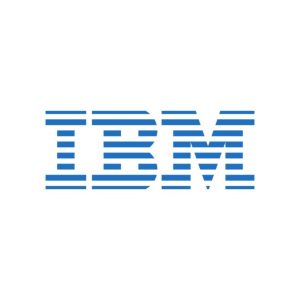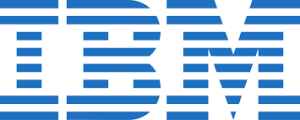- All
- Favorite
- Popular
- Most rated

Advantages of Immutable Cloud Infrastructure Software Defined Environments
In this course, you will learn about IBM Cloud® Schematics, Terraform, and Ansible and how they relate to immutable cloud infrastructure.

Storage Security Options
This course explains how role-based access control (RBAC) is used to secure solutions built on IBM Cloud®, the encryption options available on IBM Cloud, including the encryption options for storage.

Overview of IBM Cloud Technical Advocate Curriculum
This course provides an overview of the content, the specific learning objectives, and the role of an IBM Cloud® Technical Advocate.

IBM Cloud Technical Advocate Flash Cards and Study Guides
The IBM Cloud Technical Advocate study prep flash cards provide the learner with practice test questions to help them prepare for the certification examination.

Security and Compliance Services
This course introduces Security and Compliance Services for IBM Cloud VMware Solutions.

SAP Basics
This course reviews the IBM and SAP partnership and benefits of using SAP on IBM Cloud.

IBM Cloud Technical Advocate Concepts
The IBM Cloud Technical Advocate Concepts badge represents your achievement in completing the learning associated with IBM Cloud storage offerings, back up, recovery, and replication solutions.

Designing Solutions for Observability
In this course, you will explore how to observe resources using the observability dashboard.

Collecting, Analyzing, and Managing Logs on IBM Cloud
This course discusses how to collect, analyze, and manage logs on IBM Cloud.

IBM Cloud for VMware Survey
Use this survey to include any feedback you have on the entire VMware curriculum, including content, activities and labs.

Identifying Security Concerns and Securing an IBM Cloud Satellite Location
Learn how to build a secure IBM Cloud Satellite environment and how IBM Cloud Satellite keeps client data secure.

Storage Considerations for SAP on IBM Cloud
This course includes information on storage considerations for different Infrastructure-as-a-Service (IaaS) environments.

Compliance, SLOs, and SLAs
In this course, you should learn why compliance monitoring is important within the Financial Services industry and understand how to determine contractual SLAs based on customer requirements.

Cloud Service and Deployment Models
This course explores the Infrastructure as a Service (IaaS), Platform as a Service (PaaS), and Software as a Service (SaaS) models.

Overview of Monitoring
This course discusses monitoring approaches and monitoring tools for the IBM Cloud.

Applying the IBM Cloud Shared Responsibility Model
In this course you will explore the application of the IBM Cloud® shared responsibility model for various cloud resources.

Introduction to Cloud Advocate
This section introduces learners to the course and provides an overview of the content, the specific learning objectives, and the role of an IBM Cloud Advocate.

IBM Cloud DevSecOps Specialty Overview
Welcome to the IBM Cloud DevSecOps Specialty curriculum! The IBM Cloud DevSecOps Specialty curriculum prepares learners for the DevSecOps Specialty certification.

Implementation Considerations
This course covers implementation considerations such as enterprise account management, FS validation, and how DevSecOps and Code Risk Analyzer can be used as solutions.

Optimizing Solution Performance Using Geolocation
In this course, you will explore how geolocation can be used to increase performance. You will also explore the Content Delivery Network, Dynamic Content Acceleration, and Time to Live.

IBM Cloud Managed Database Options
This course compares and contrasts the different IBM Cloud® managed database options.

IBM Backup, Recovery, and Replication
This course explores IBM Cloud® backup, recovery, and restore options, their capabilities, and benefits.

Employ Cost-Optimization Strategies
This course identifies how to employ cost-optimization strategies and reviews when automation should be used, along with different models for refactoring a monolithic application.

SRE: A Deeper Dive
This course introduces Site Reliability Engineering (SRE) as well as key tenets of SRE and how to promote an SRE culture for maximum effectiveness.
The Founding of IBM and Its Evolution Over the Years
IBM’s roots trace back to the early 20th century, when it was initially founded as the Computing-Tabulating-Recording Company (CTR) in 1911 through the merger of three companies that manufactured various devices, including punch card machines and time-keeping equipment. In 1924, the company adopted the name International Business Machines, which aligned with its ambitions to lead the global market in technological solutions. During the 1930s and 1940s, IBM expanded its influence by introducing automated tabulation machines, which became essential tools for businesses and governments. IBM’s success continued with its innovations in mainframe computers in the 1950s and 1960s, which solidified the company’s position as a leader in computing technology. The IBM 701, released in 1952, was the company’s first large-scale electronic computer, and it marked the beginning of IBM’s dominance in the mainframe market.IBM’s Notable Milestones
Throughout its history, IBM has consistently been a leader in groundbreaking technology. Some of the company’s most notable milestones include:- 1964: The launch of the IBM System/360, a family of mainframe computers that could be used for a wide variety of tasks. This innovation was a turning point in the computing industry, allowing businesses to invest in technology that could grow and adapt with their needs.
- 1997: IBM’s Deep Blue, a chess-playing computer, made history by defeating world chess champion Garry Kasparov, showcasing the potential of artificial intelligence.
- 2011: IBM’s AI-powered system, Watson, won Jeopardy! against human champions, further cementing IBM’s leadership in AI research and development.
- 2016: IBM became one of the first companies to provide cloud services with its IBM Cloud platform, which today remains one of the most widely used enterprise cloud platforms worldwide.
- 2020: IBM advanced its quantum computing efforts by launching the IBM Quantum Experience, a cloud-based platform that allows researchers and developers to access quantum computers.
IBM’s Educational Offerings and Certifications
IBM’s dedication to education is evident in the wide range of courses it offers across multiple domains of technology. The company’s IBM Skills Academy is an industry-leading educational platform that provides learners with in-demand skills. IBM’s courses on EdCroma include specialized training in:- Data Science: Master the fundamentals and advanced techniques of data analytics, machine learning, and AI.
- Cloud Computing: Learn to develop and manage cloud infrastructure using IBM Cloud and other industry-leading tools.
- Blockchain: Gain expertise in blockchain development and its applications in finance, supply chain, and cybersecurity.
- Cybersecurity: Learn about the latest threats and how to defend against them, leveraging IBM’s extensive experience in securing enterprise-level systems.
- Quantum Computing: Explore the future of computing with IBM’s quantum education programs, which provide hands-on experience with quantum algorithms and development.
IBM’s Approach to Learning
IBM’s educational philosophy is centered on continuous learning and skill development. As technology evolves, so do the demands of the workplace. IBM ensures that learners stay ahead of the curve by offering courses that reflect the latest trends and technological advancements. Courses are designed to be interactive and engaging, with hands-on projects and case studies that help students apply what they’ve learned to real-world scenarios. Additionally, IBM emphasizes the importance of industry collaboration. Many of the company’s courses are developed in partnership with leading academic institutions and industry experts. This ensures that the curriculum is not only academically rigorous but also aligned with the needs of the business world.Why Choose IBM as Your Educational Partner?
IBM’s legacy of innovation, combined with its commitment to education, makes it a top choice for learners who want to excel in the tech industry. By enrolling in IBM’s courses on EdCroma, students gain access to:- World-class instructors with decades of industry experience.
- Cutting-edge resources and tools for hands-on learning.
- Globally recognized certifications that enhance career prospects.
- A community of industry professionals and thought leaders who are shaping the future of technology.

